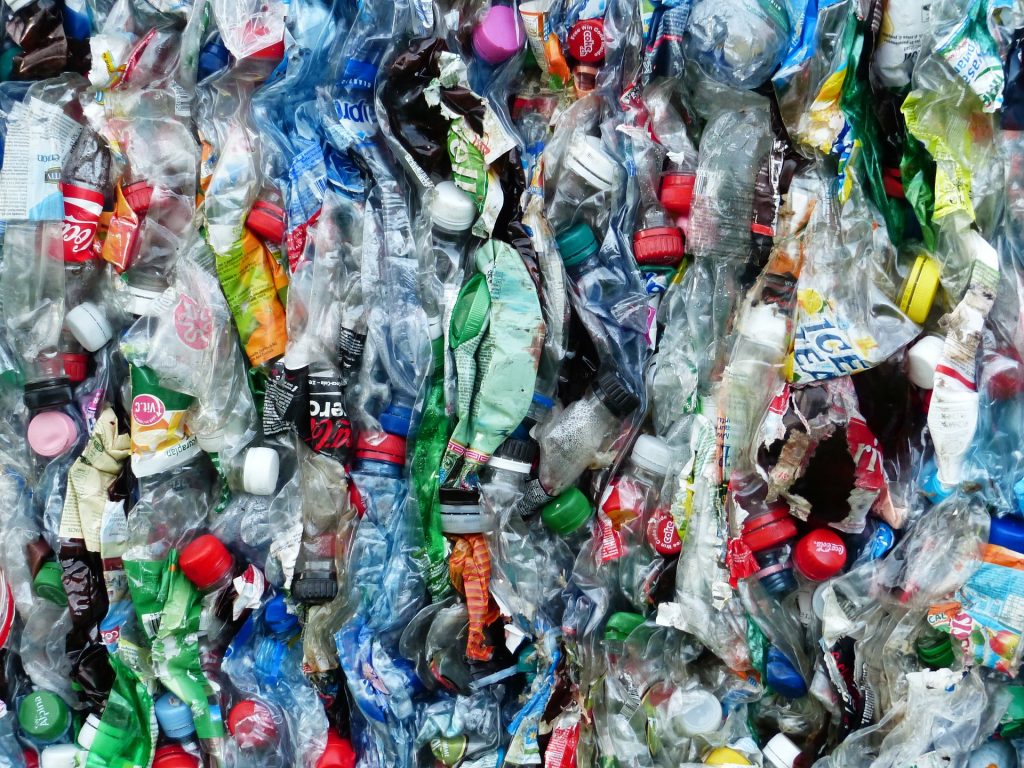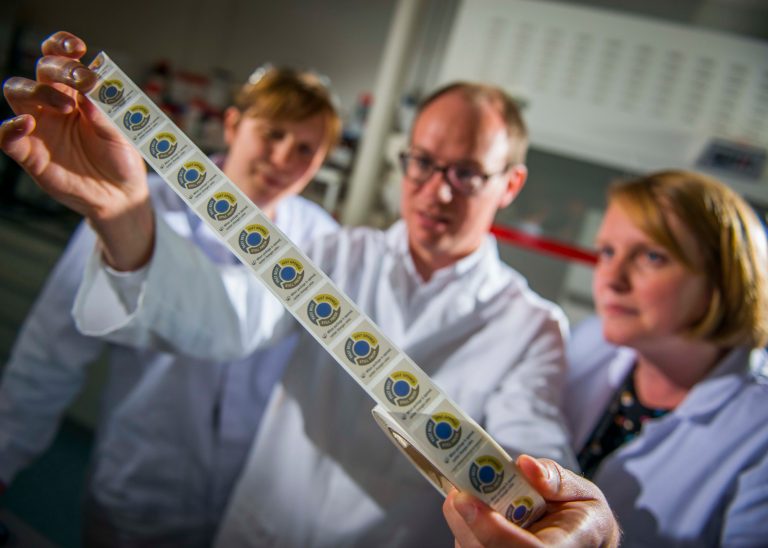
Earlier this month, French scientists published a paper in Nature describing a new enzyme that breaks down the common plastic, polyethylene terephthalate (PET, or PETE), faster and more efficiently than any previous candidates. The enzyme was developed through a collaboration between the emerging green chemistry company, Carbios, and the University of Toulouse and is already being touted as “a huge step forward” by scientists not involved in the research.
If you aren’t familiar with PET, the flexible, translucent plastic makes up many common household products, from disposable plastic water bottles to food containers to beauty product bottles. Estimates say that about 70 tons of PET are produced each year, but only about 30% of it gets turned into new plastic. As a result, PET makes up a big part of plastic pollution.
The PET recycling rate is so low because, when it gets melted, dyes and residues that are part of the plastic packaging remain mixed in, so it becomes difficult to reuse. Instead, it’s usually made into low-grade fibers for carpets, jacket insulation, sleeping bags, and other products where the mixing of additional dyes and residues is not a problem.
So what makes this new enzyme such a good solution for managing plastic pollution? The enzyme is an engineered version of leaf-branch compost cutinase (LLC), which breaks the bonds between PET’s building blocks, terephthalate and ethylene glycol. In a laboratory test, the engineered LLC was able to convert 90% of recycled PET back into its starting materials in only 10 hours. The output is reusable because the enzyme is able to break the bonds linking the two PET components, which returns them to their original form without touching the dyes and other additives in the mix. There is one major limitation, however. Bottles must be ground up and heated before the enzyme is added, so the recycled PET will be more expensive than the original. Still, there is certainly demand for a recycled end product that’s as good as its starting material. Carbios is currently partnered with Pepsi, L’Oréal, Nestlé, and Novozymes to help accelerate development. The company plans to have a demonstration plant completed by the end of next year and begin commercial production by 2025.
Though Carbios’s enzyme is only one of many solutions needed to reduce plastic pollution, it is sure to rescue a significant amount of post-consumer plastic from landfills and oceans. Looking to learn more about the science behind this new enzyme? Check out the original Nature paper or this article from Science Magazine News. Happy reading!



